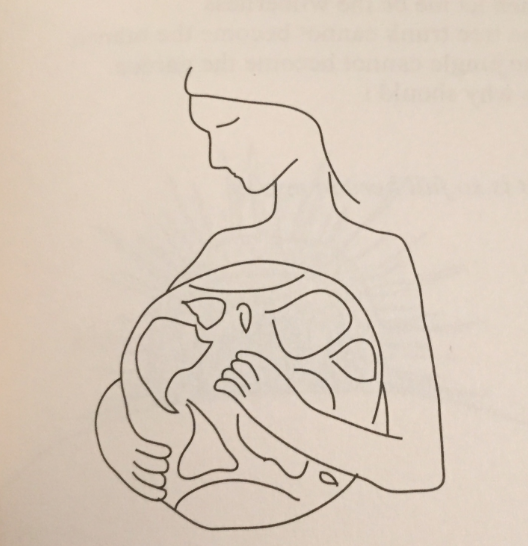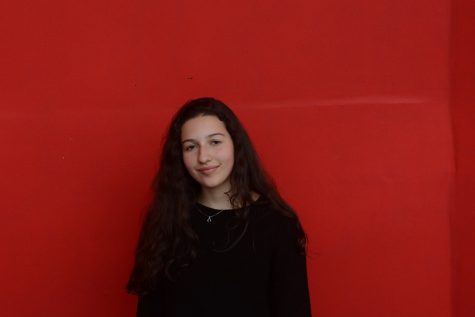This Is Love

Love. A subject everyone seems to know about and experience, and yet all struggle to explain. Scientists have been trying to come to a conclusion for centuries, but the answer stays the same: unknown. Psychologists, biologists, and philosophers have all attempted to reach an understanding over time, but the task has been proven to be very difficult. We all have certain ideas of what love should look like, and fitting it into a box limited for romantic affection. However, I believe love shouldn’t be and stuck between Barbie and Ken or Romeo and Juliet; it should be accepted in all forms.
Now that I have begun to study psychology this year, love is one of the topics that most interest me, and therefore, it seemed worthwhile to do some research on. In my Portuguese class, our first summative was to listen to a song, look at its lyrics, and then write a letter. The song was about two people who were in love, but one of them ended the relationship through the letter. The lyrics eventually get mixed up, and it’s hard to tell who’s who. All we know is the person who had previously said their relationship was over sent another letter, but the receiver chose to not read it and burn it. Our writing prompt was to either write a letter from the sender’s perspective to the receiver or vice-versa. This task caught my attention because there were endless possibilities on how to write it. There are so many emotions, time, and thinking that goes on in these kinds of situations. One of the thoughts that came up while pondering on this was “How and why does love end?” However, before I questioned, I realized I had to find out what happens to us physically for us to first be in love in the first place.
There have been countless studies on this topic, but most focus on people’s interactions with each other. I was able to find some that were more focused on the physical part of love. The most thorough and interesting one seemed to be an essay by Heather M. Chapman, a former medical student at the University of Rhode Island. Based on Chapman’s study on love in the biological sense, when you are in any of the “stages” of love, your body starts to produce oxytocin, a hormone that is related to bonding, and dopamine, which is a neurotransmitter that stimulates your pleasure centers. Additionally, your amygdala (the center of your brain that processes emotion) fires up in action. This happens every time you are in a situation where you are in love. However, once all those positive emotions are taken away – for example, when someone breaks up with you – the consequences of that are similar to those of a drug addict experiencing withdrawal.
A very harsh but important example of this is when a child gets taken away from its parents. Currently, in the United States, the Trump administration is using ICE (a government agency within the Department of Homeland Security that stands for Immigration and Customs Enforcement) to deport, investigate, or take away children from their undocumented or migrant parents. Now, migration is an entirely different and substantial topic that is extremely complicated. However, the “withdrawal” symptoms both parents and children feel when they are ripped apart from each other by the government, is an unbearable sight. For example, for one migrant family, Nazario and Filomena, his five-year-old daughter, crossed the border from Guatemala because they felt threatened and unsafe in their own home. A caseworker sat down with both the father and the daughter to try and reunite them out of their respective detention centers. She said the little girl was “crying every day, [and] was missing her father very much” (KQED). While the father, Nazario, was also “crying every day, missing his little girl” (KQED). When I read about a situation similar to Nazario and his daughter’s, I tear up and almost feel their pain. The love mixed with sadness and hatred is evident through the screen.
Making a note of my previous question on how and why love ends; it doesn’t. People around me have been through experiences related to “withdrawing”, as Chapman described it. For example, that person you were attached to ages ago that you are now infuriated by will always leave traces of memories behind. That project you stopped working on because nothing was working out will always be in the back of your mind, your thoughts filled with what if?. Eventually, you will grow feelings for something else that was never there before. For this reason, love is always in us and will bloom again when something different comes up that catches our eye; the “previous love” we had will still be there in our memories. Love is a cycle that will keep us going no matter what circumstances arise. We will forget our love, love again, then remember the first one after some time.
Yet, I still wonder what love is. Will we ever have a concrete definition for what love is besides “an intense feeling of deep affection/a great interest and pleasure in something“? Those phrases are too short and broad to truly grasp what love is. I don’t think we’ll ever come to a conclusion, but it’s okay to be uncertain. Uncertainty is what makes it so delightful to think “Is this what love is?”. That feeling is what makes us want to cherish those moments in life even more.
I believe love has no definition and all definitions at the same time. Love is pouring your heart out on a project you adore. Love is hugging your friends tightly when you see them after the summer break. Love is helping a street artist profit by putting R$20 in their money jar. Love is signing a petition against animal cruelty. Love is being with your family during the holidays. Love is jamming out to your favorite song in the car. Love is wishing your date would last forever. Love is crying over a book feeling sympathy for a character. Love is teaching a stranger about a subject you know a lot about. Love is walking your dog. Love is being an ally to those who would be punished for being themselves. Love is sleeping until noon on the weekends. Love is congratulating someone for their achievements, and forgiving them for their wrongdoings.
Love transcends all situations and ways of being. It can’t be trapped in a definition. It is limitless. It knows no boundaries. It is all around us, and in us as well. Remember that when the world seems to be so full of hate, love will shine through. Love is here to stay.
What is love to you?
Sources: Heather Chapman’s Study, Harvard’s “When love and science double date”, Huffington Post’s Report On Migrant Children, KQED On Nazario and His Daughter, Google’s Definitions of Love

Isa is a sophomore at school, but a freshie at The Talon. She is a writer for the Features section and loves to poke at controversial topics. She's very...









